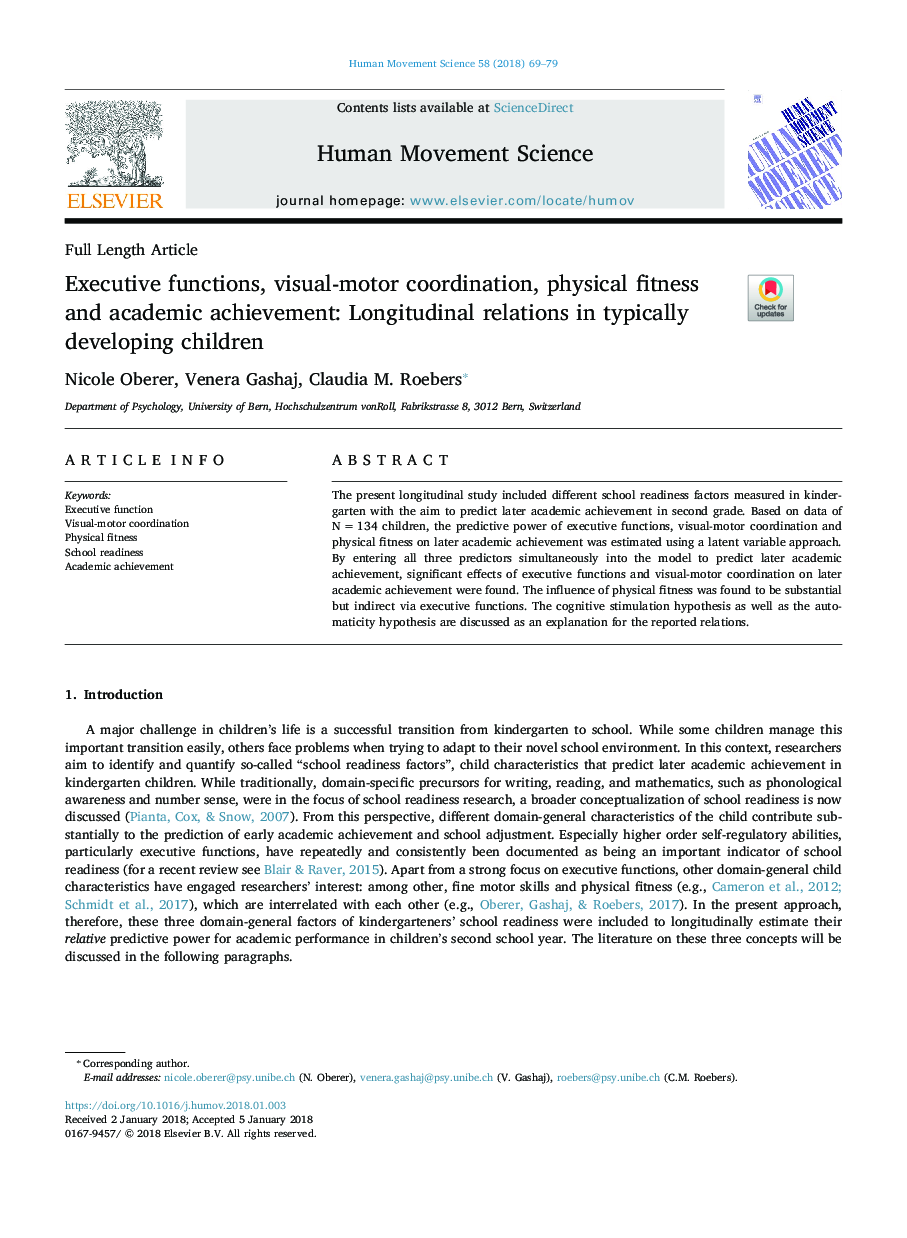| Article ID | Journal | Published Year | Pages | File Type |
|---|---|---|---|---|
| 7290914 | Human Movement Science | 2018 | 11 Pages |
Abstract
The present longitudinal study included different school readiness factors measured in kindergarten with the aim to predict later academic achievement in second grade. Based on data of Nâ¯=â¯134 children, the predictive power of executive functions, visual-motor coordination and physical fitness on later academic achievement was estimated using a latent variable approach. By entering all three predictors simultaneously into the model to predict later academic achievement, significant effects of executive functions and visual-motor coordination on later academic achievement were found. The influence of physical fitness was found to be substantial but indirect via executive functions. The cognitive stimulation hypothesis as well as the automaticity hypothesis are discussed as an explanation for the reported relations.
Related Topics
Life Sciences
Neuroscience
Cognitive Neuroscience
Authors
Nicole Oberer, Venera Gashaj, Claudia M. Roebers,
